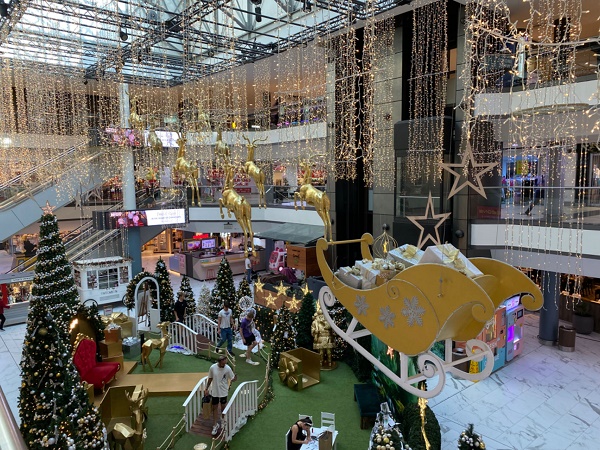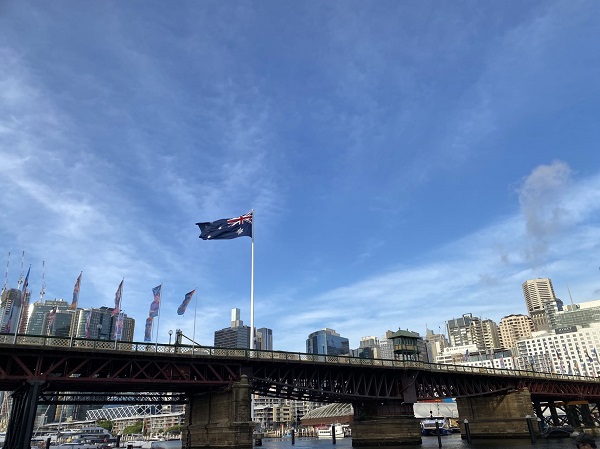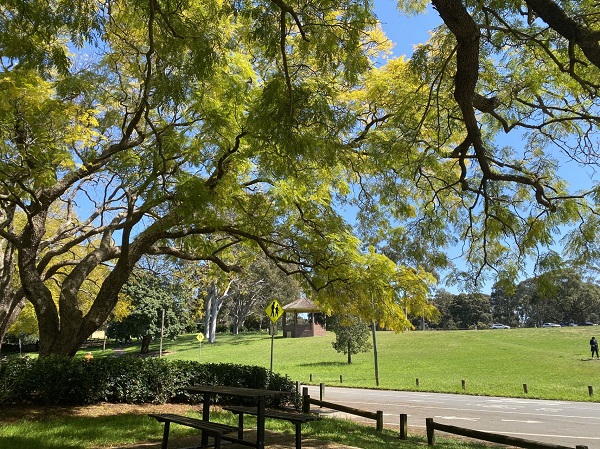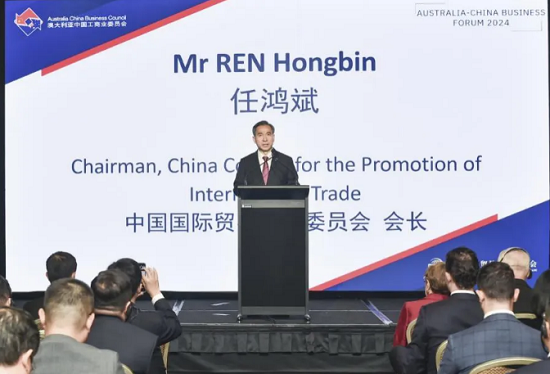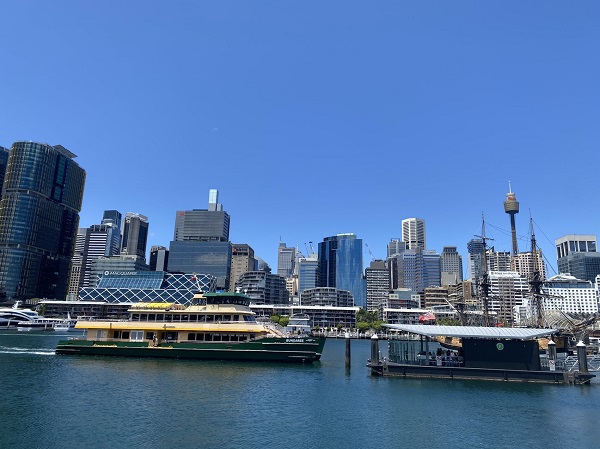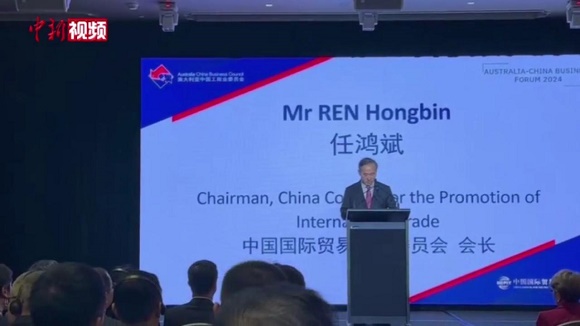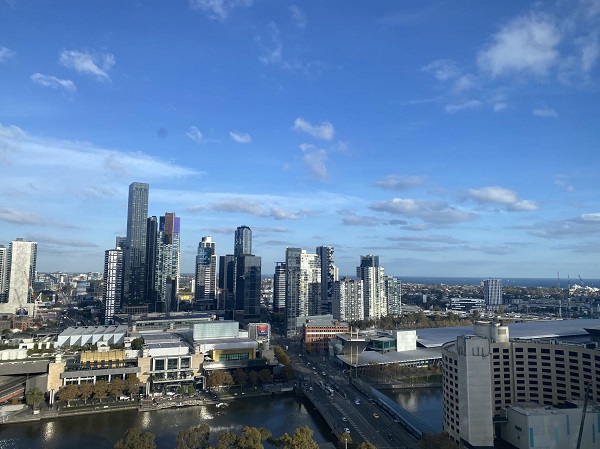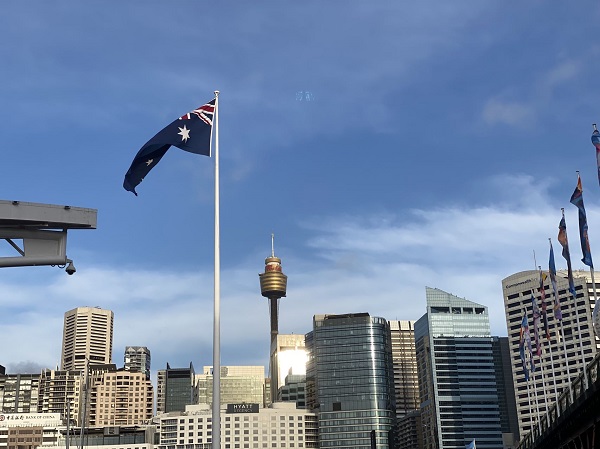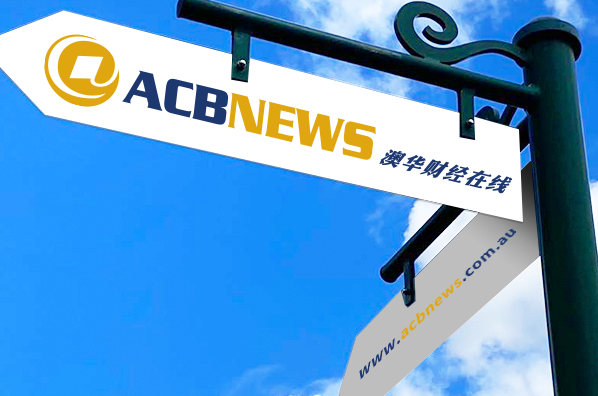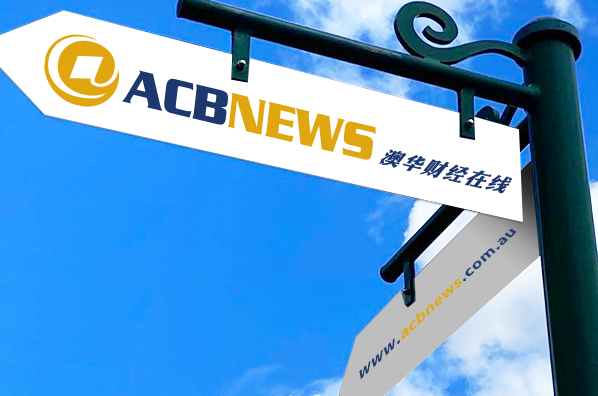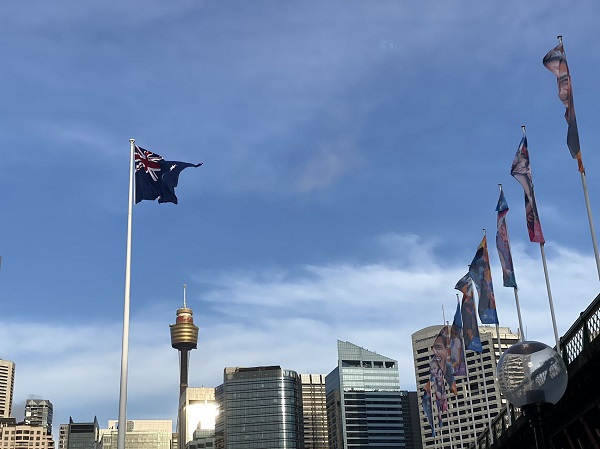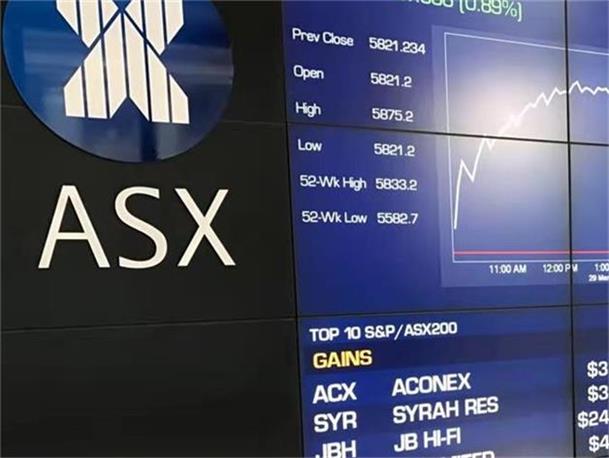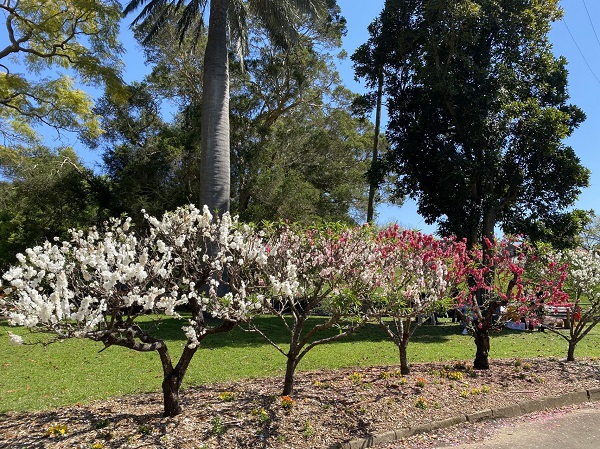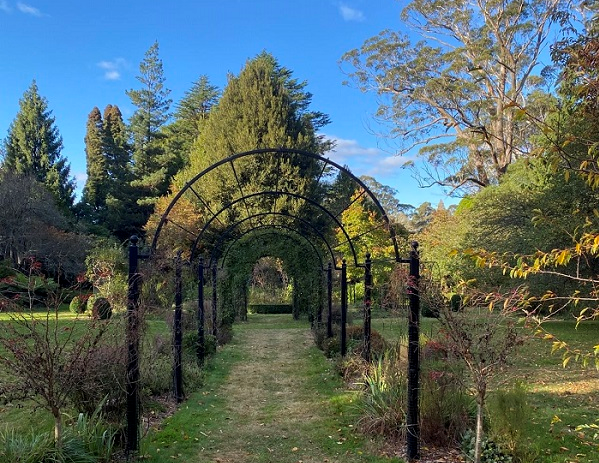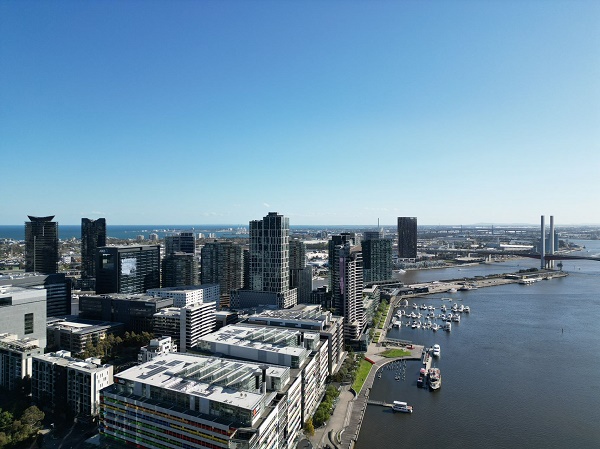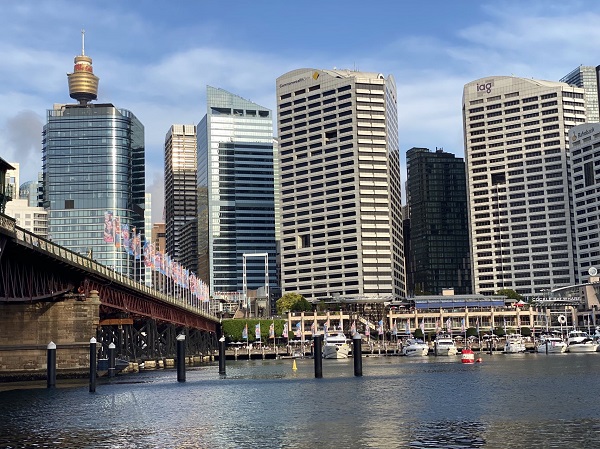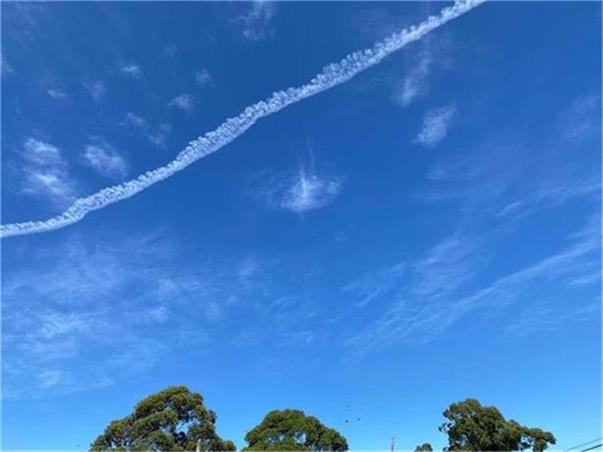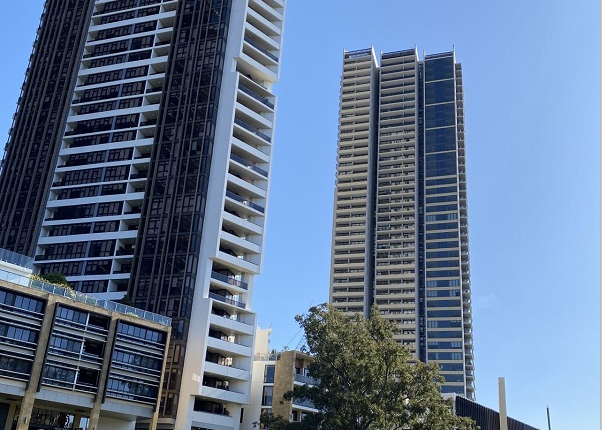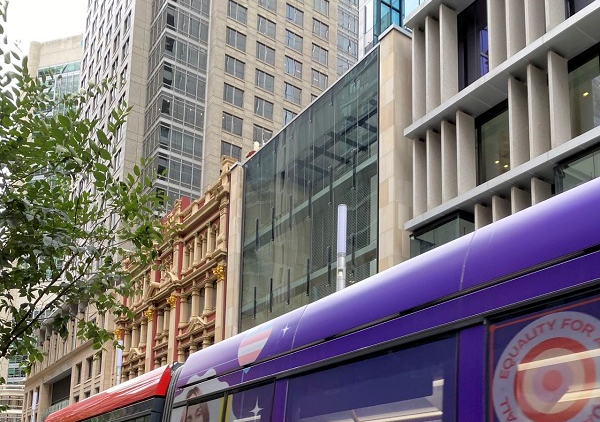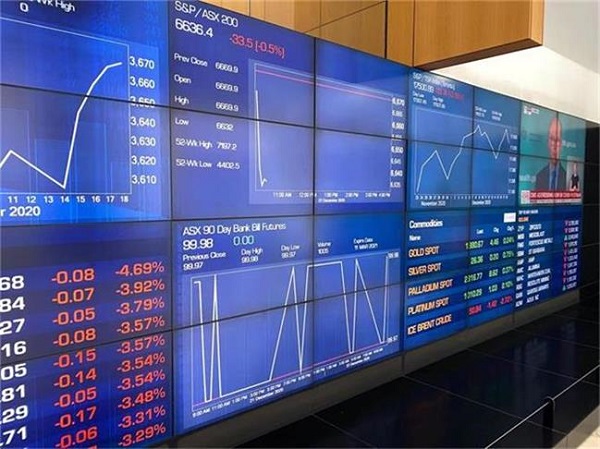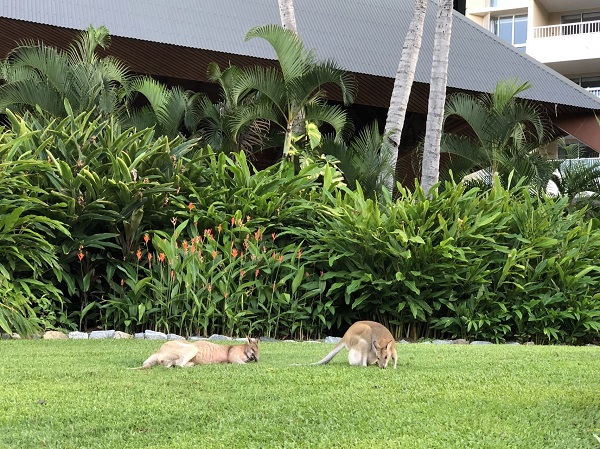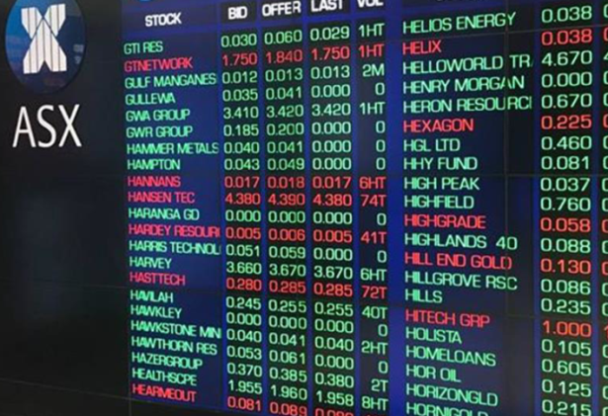
导语:
澳大利亚总理Scott Morrison 上任之后,其内阁政府的政策基调受到普遍关注。11月1日,Scott总理在悉尼出席亚洲学会( Asia Society Australia)主办的一场亚洲简报会并应邀做主旨演讲,本次演讲中,Scott总理对澳大利亚外交政策、贸易政策、核心价值观、政府信念和国家远景等做了全面阐述。
《澳华财经在线》全文编译并刊发Scott总理演讲全文。(英文原文及链接附后)。
澳大利亚总理莫里森演讲全文:信念引领我们前行 固步自封永远不会成功
莫里森:感谢澳大利亚亚洲学会主席Doug Ferguson和首席执行官Philipp Ivanov邀请我出席今天这场活动。
我还要感谢这场活动的合作伙伴彭博社,在全球峰会高峰期来临之前及时举行亚洲简报会。当然,我也要感谢我的朋友和同事——外交部长Marise Payne。
自澳大利亚亚洲学会成立20多年以来,该学会为有志与澳大利亚及亚洲交流联系的相关人士提供了一个独特的平台。
今天,在我作为总理即将进入我的第一个年度首脑会议季节之际,我想与大家分享一些我对澳大利亚本地区内部及澳大利亚与其它地区之间交流方式的看法。
我们的外交政策定义了我们对世界的看法以及我们在世界中的位置。
我们的外交政策必须谈及我们的品格与我们的价值观。我们代表了什么。我们相信什么,如果需要的话,我们会捍卫什么。这是我们国家利益的指导方针。
一段时间来,我们的外交政策太多地被从狭隘的交易角度去评估,对此我表示担忧。
在外交政策以及我们国家的利益的界定中,过度渲染项目交易在其中的意义,将使我们处于不利的地位。
如果我们允许这种交易思维模式持续并成为我们信念中的一种妥协,不仅会令我们自身感到失望,而且我们也将不会再表达自己的意见。
贸易数字总和,固然是我们追求的,但我们应该远超于此。
那么,是什么信念在引导着我们呢?
我们相信“和平与自由”必须通过追求繁荣与富强来实现,而这要通过私人资本、财产权利、企业家精神以及自由开放的市场来达到,这才是让人们摆脱贫困的原因。
我们认为,接纳一个个体,不应该由他们的种族或者宗教信仰决定,而是应该通过他们的言行举止来判断。
我们信奉言论自由、思想自由、集会自由和宗教自由。
我们相信和平自由的民主、法治、分权、种族以及性别平等,这使得每个公民都能够拥有选择和机会去追随自己的道路和梦想,这就是“公平”在澳大利亚所代表的含义。
我们相信政府的局限性 - 因为“自由”是所有人相互尊重的最佳基础。
我们相信我们的合作伙伴,我们与那些有相同信念的国家并肩而立。
穿越沟渠和隔阂,从英国和欧洲民主国家到美国和加拿大,从以色列到新加坡,从日本和韩国到新西兰。
我们相信自己可以成为一个好邻邦——尽管我们看待这个世界的角度和管理各自社会的方式存在差异。
我们也相信这种信念应该是双向的。
我们尊重他国主权完整和各自选择自己发展道路的权利。
我们要求的是得到同样的对待——我们希望我们的观点、信念、我们做出的决定、我们提出的问题以及我们如何回答这些问题并做出这些决定也能够得到同样的尊重。
当我们这样做时,无论我们是否有其他任何的分歧,我们可以走到一起,在各国人民的共同利益上往来。
我们在本地区和全世界所倡导的理念,和我们在国内所奉行的毫无二致。
我一直以来都非常清楚我在国内的优先使命 —— 保持我们的经济强大、保证澳大利亚人的安全,并使我们团结在一起。
繁荣,安全和团结。
我们的国际事务日程建立在我们强大的国内基础之上,并反映在去年发布的外交政策白皮书的关键主题中。
历史变化的潮流正在朝我们涌来。
但我们不能假装这种变化的潮流可以悄无声息地发生或自然而然地发生。
伴随着经济力量的转变,各国寻求在我们地区发挥更大的战略作用,这并不令人惊讶。
尤其是中国,中国正在印度-太平洋地区发挥着前所未有的影响力。
与此同时,我们在全球的许多合作伙伴 - 从我们最重要的合作伙伴和盟友美国,到在欧洲和其他地区的合作伙伴 - 正在辩论自由贸易的价值,并担心其全球性承诺的代价和风险。
我们不能回避这些辩论和挑战。
这些辩论和挑战的政治影响十分深远。
澳大利亚致力于在这些时期确保本地区的和平,将务实主义和原则相结合,始终发挥我们的优势。
澳大利亚的经济正在增长,我们对国家充满信心,我们的财政实力正在变得愈加雄厚。
我们的持续成功取决于贸易的开放和投资的开放。我们不可能通过向自己卖东西来使自己变得富有。
正如我们需要资本和其他投入来建设我们的经济一样,我们需要开放的市场和透明的规则。
贸易行业为澳大利亚提供了五分之一的就业岗位,并雇佣了超过220万员工。
我们拥有世界其他国家所需要的丰富技能和资源。我们是值得信赖的合作伙伴。
开放的服务市场不仅为澳大利亚消费者提供了更多选择,并为企业和更广泛的技能和专业知识资源对接提供了支持。
据估计,由于30年来的贸易自由化,现在澳大利亚普通家庭的年均收入增加了8,500澳元以上。
此外,正如亚洲学会所知,亚洲在过去三十年中前所未有的增长不仅改变了亚洲,也在相当程度上改变了整个世界。
现在生活在极端贫困中的人口比1990年减少了10亿,其中大部分是得益于我们所在地区的发展。
这种繁荣建立在一系列支持经济开放和遏制以邻为壑的贸易壁垒制度及规则的基础之上。
长期以来,世界贸易组织一直是该体系的核心。世界贸易组织的规则,限制了任意做出的贸易限制和单边贸易措施的使用,正是如此,我们可以放心地进行交易。
没有一个系统和机制是完美无瑕的,我们承认在世贸组织现有的规则制定、透明度和争端解决机制下,挫折的案例在增长。
许多成员国对诸如工业补贴导致生产过剩等政策存在着合理的担忧。
几十年来,澳大利亚一直呼吁在农业相关产业上采取类似的做法。
与此相同,成员国也对知识产权保护和政府实体参与市场的管理规则存在合理的担忧。
要解决该问题,最好的工具应该是谈判桌,而不是增加关税。
我们支持改善和加强世贸组织的工作,承认美国和其它国家遭受的一些挫折。
我们还将在贸易议程中秉持务实之风,尽可能地追求贸易自由化。
昨天澳大利亚刚刚批准的11个成员国参与的跨太平洋伙伴关系协定(TPP),正是最佳例证。
现在,随着6个国家的加入,该协议将于今年启动,澳大利亚将从12月30日起立即实施关税削减。
该协议将使我们的企业和农民能够接触到多达5亿以上的新客户群体。
我们尽可能地寻求贸易机会。
展望未来,我们有一个重要的自由贸易协定议程,包括我们与印度尼西亚的全面经济伙伴关系协议,以及与东盟、欧盟以及脱欧后的英国等主要区域经济体建立区域全面经济伙伴关系的谈判。
这个议程是建立在此前一系列成就之上的,其中包括我们与中国、日本和韩国签署的三项自由贸易协定,这些自由贸易协定给我们的企业带来巨大的收益。
长远来看,我们尤其希望加强与印度的合作伙伴关系。
我们之间共同的基础已经非常强大——我们有着相同的价值观、有着对民主体制的承诺,彼此拥有巨大的善意、人民之间有着牢固的关系。我们还有着共同的战略前景。
现在正是我们加紧努力的时候。
我们对前印度高级专员和DFAT负责人Peter Varghese的著作《2035年的印度经济战略》表示赞同。
这是迈向长期战略的第一步,巩固了印度在澳大利亚合作伙伴中的优先地位。关于此,我还有更多的话想对即将来访的印度总统说。
仅仅依靠经济安全本身是不够的。繁荣需要安全。
安全需要我们为维护共同利益做出共同努力。
在即将举行的会议上,我将与其他人一同推进我们的工作,以解决恐怖主义和暴力极端主义、网络犯罪、人口走私和核扩散等问题。
我将参与讨论如何确保朝鲜半岛实现彻底无核化,尽管朝鲜半岛的前景似乎正在改善。
无论大国、小国,我将重申澳大利亚对所有国家的航行自由和飞行自由保持关注和尊重。
在所有这些问题上,美国仍在我们地区的安全局势中发挥着至关重要的作用。
与美国进行联盟是我们追求安全利益的最佳选择。
由于美国的安全能力和联盟网络,美国的参与对于区域稳定和繁荣至关重要。
澳大利亚与中国也有着至关重要的关系。
贸易、旅游和教育交流正处于创纪录的高速发展之中。
澳大利亚对澳中民众间成千上万的日常互动极为看重并以此为荣。
我们致力于深化与中国的全面战略伙伴关系,我期待在本月晚些时候与中国领导人就此进行更多的探讨。
当然,中国并不是具有世界变革力量的惟一国家。
但中国是最能改变世界力量之间平衡的国家,有时会以挑战美国利益的方式来呈现。
难免地,在未来的一段时间中我们将迎来更高程度的美中战略竞争。
一个参与我们地区事务的强大的美国,对于澳大利亚的国家利益来说至关重要。
在地区安全和繁荣方面,澳大利亚不寻求搭便车。
我们以提高国防开支在内的切实方式,来支持美国在印度洋太平洋地区实现政治安全和经济参与。
同时,不要以“对抗”来定义中美两国的关系也同等重要——中美两国必须保持对话与合作的空间。
未来有时可能会充满挑战,但我对我们克服困难的能力充满信心。我们的价值观和信仰将再次引导着我们。
澳大利亚一直致力于成为一个扮演好自己角色的世界公民。
在中东尤其如此。
从一个世纪前的第一次世界大战到最近的伊拉克战争和阿富汗战争。我们都贡献了自己的力量,我们发挥了自己的作用,我们完成了自己应尽的职责,同时我们也为此付出巨大的代价和牺牲。
我们这样做是因为我们认为这是对的。我们忠于我们的价值观和原则,而这些价值观和原则始终符合我们的利益。
同样基于这样的信念,基于对持久和平的渴望,我们为以色列提供支持,我们殷切期待“两国方案”在中东的成功,同时我们将继续推动相关领域的政策。
在本地区,澳大利亚将继续深化与日本、印度尼西亚、印度和韩国的合作,以帮助我们在本地区建立平衡合作关系,支持地区开放,并确保所有国家的权利得到保护。
我期待不久后便能热烈欢迎日本首相安倍晋三到访澳大利亚。
通过加强与这些民主国家的关系,将增强我们的国家利益,但仍将保持地区秩序的发展。
作为总理,我在第一次国际访问时到访了雅加达,这并非偶然,这已成为澳大利亚总理的一项传统。
澳大利亚与印度尼西亚有着至关重要的合作伙伴关系。在我的一生中,印度尼西亚是近年来民主政治最成功的国家之一。
澳大利亚与印度尼西亚的关系是由地理条件所促成的,同时也是基于两国的相互尊重,相互理解差异,相互认可共同的目标、利益和价值观。
我期待着很快能再次见到佐科·维多多(Joko Widodo),以扩大我们迄今为止在两国关系中取得的成就。
东盟在支持地区稳定和繁荣方面发挥了关键作用,是印度洋太平洋区域的中心。
澳大利亚对印度洋太平洋地区的愿景以东盟为核心。
东盟的成功,对于包括澳大利亚在内的地区主要成员国的利益至关重要。
在今年3月的特别首脑会议上,澳大利亚明确了对东盟的承诺,同时《悉尼宣言》也明确提出了加深彼此合作的重要议程。
我将很快在东盟领导人非正式会晤中推进这一议程,包括“反恐合作”、“基础设施合作”和“海上合作”等领域。
我将会谈论到我们在跨国犯罪问题上的合作、增强对网络问题的相关措施、并加强国防方面的合作。
东南亚的稳定,繁荣和开放十分重要,同样重要的是我们与太平洋地区的友邻和家人的交流。
作为家人,我们公开坦诚地相互交往,而其中最重要的是尊重。
但像所有家人一样,我们有时会把对方视为理所当然的存在。
太平洋地区是我们生活的地方,我所领导的政府致力于将太平洋地区作为我国外交政策的最优先事项之一。
我希望澳大利亚与太平洋地区的关系,能上升到全新的相互尊重、相互合作、相互熟悉和相互欣赏的水平。
我希望我们可以做得更好。我想告诉大家我们应如何与太平洋的家人交流 - 我们的“Vuvale”,我们的“Whanau”,我们不会把太平洋家人视作理所当然。
在国内,我首次进行会晤的外国领导人是南太平洋岛国斐济和所罗门群岛的总理,今天下午我将会见巴布亚新几内亚的总理O’Neill。
我也期待在莫尔斯比港举行的亚太经合组织会议(APEC)后,与太平洋地区的国家领导人进行会面。亚太经合组织将是我们最亲近的邻国向世界讲述其故事的绝佳机会。
我们将比以往任何时候都更加密切地与太平洋岛国就他们最关心的问题进行密切合作 - 包括气候解决方案和灾害复原力,我们将继续履行我们在这些方面做出的国际承诺。
我们正在为太平洋国家建立向澳大利亚输出劳务的流动机会,并确保太平洋国家始终具有优先权。
我们将向太平洋地区提供澳大利亚奖学金 - 仅去年一年就有1,474个名额。
我们为巴布亚新几内亚和所罗门群岛的海底电缆提供大部分资金,包括所罗门群岛国家的国内网络,从而提供更快、更便宜和更可靠的通信服务。
我们希望继续与其他国家开展合作,包括新西兰和美国等传统合作伙伴以及中国等新兴合作伙伴,以确保我们的参与能够促进增强我们共同的目标:促进经济可持续发展,增强太平洋友邦的福祉。
太平洋就是我们的家,为了太平洋地区的福祉,我希望加强与太平洋地区国家的交流。
我们将以太平洋地区安全宣言为基础,推动更广泛的安全合作,建立更强大的经济联系,并加强我们经济的一体化。
我们仍在共同努力增加区域安全和保障,提供更大更有能力的巡逻艇和空中侦察机,并分享更多信息,帮助太平洋地区打击毒品贩运、人口走私和非法捕鱼。
新成立的澳大利亚太平洋安全学院,将培训下一代安全官员。
我们与所罗门群岛谈判达成了一项双边安全协议,同时我们正与斐济合作发展黑石区域维和和灾难培训中心。
同样,我们将逐步采取措施与瓦努阿图进一步加强包括安全问题在内的双边伙伴关系。
今天下午晚些时候,我和我的朋友和合作伙伴——巴布亚新几内亚总理Peter O’Neill将正式发起一项联合倡议,以发展马努斯岛的洛布朗基地。
我们还将确认全新的长期警务合作伙伴关系。
同时,我们承诺召开新年度领导人会议,认识到每个国家对其他国家的重要性。
像所有家人一样,当我们互相倾听、相互支持并相互尊重时,我们才是最强大的。
在瞬息万变、不确定性较大和战略竞争的时代,澳大利亚需要采用更大的目标和信念。
我们还需要考虑如何利用我们的国家权力来保护并促进我们的利益。
首先,建设一支更有能力、更敏捷、更有力的澳大利亚国防军,并提供大量相关投入。
在过去的五年中,我们的政府一直在加强澳大利亚国防军。
我们的国防资金充足,在国防白皮书中,我们也概述了将在未来10年内,在澳大利亚国防上投资2000亿澳元。
自2013年大选以来,我们承诺并已经着手将国防开支恢复到GDP的2%。我们将在2020-2021年中提前三年实现这一目标。
这并非易事。
虽然我不愿在本次演讲中发表具有党派意味的言论,但必须指出的是,虽然工党反对派如今表示他们有义务支持以上目标,但在工党执政期间,却没有委派任何一艘海军舰艇。目前,国防开支作为我们经济的一部分,已经降到了自第二次世界大战以来的历史第二低的水平。
我们现在正在进行第二次世界大战以来澳大利亚皇家海军的最大重建,具体包括潜艇舰队数量翻倍、建设全新的九艘护卫舰队和一支由12艘近海巡逻舰组成的新舰队,以确保我们的边界安全。
F-35联合攻击战斗机计划,将为空军提供前所未有的空中能力,以应对未来的威胁。
我们的军队正在配备全新的装甲侦察车、新式武器,以及全新的防弹衣和夜战装备。
我们之所以采取这些措施,是因为这是保证澳大利亚人民安全的最佳方法,能为空军部队提供最佳的防务能力。
我们在国际的影响力建立在我们国内实力的基础之上。
建立在将我们紧密联结的民主和开放的社会之上。
建立在我们对自由和公平的信念之上。
建立在强大的经济基础之上,使我们能够履行对澳大利亚人民的承诺。
我对我们的信念、我们的立场以及随时准备推进澳大利亚的发展有着清晰的认识,着眼于此,我将参加一系列峰会季, 包括新加坡的东亚峰会、巴布亚新几内亚的亚太经合组织峰会和阿根廷20国集团会议。
虽然我们生活在一个岛上 ——世界上最好的岛屿 ,但我们不能有岛国心态。
我们接受自由贸易、参与国际体系,我们同意并遵守国际规则,坚持并遵守我们的承诺。
我们拥抱一个开放、稳定和繁荣的印度洋 ——太平洋地区。
因为固步自封永远不会成功。
如果我们想保持经济强劲,如果我们想让澳大利亚人民获得安全,如果我们想要团结一致,我们就必须与世界接轨。
我们就要秉持始终支撑我们成功的信念和价值观,紧紧把握眼前的机会。
KEYNOTE ADDRESS TO ASIA BRIEFING LIVE – “THE BELIEFS THAT GUIDE US”
SYDNEY, NSW
THURSDAY 1 NOVEMBER 2018
PRIME MINISTER: Thank you Doug Ferguson, Chairman of the Asia Society Australia, and to the CEO Philipp Ivanov for the invitation to be here today.
I also want to acknowledge your event partner Bloomberg for this very timely Asia briefing in advance of Summit Season. And, of course, my friend and colleague, the Foreign Minister Marise Payne.
Since its foundation more than 20 years ago, the Asia Society Australia has provided a unique forum for bringing together those with a keen interest in Australia’s engagement with Asia.
Today, as I head into my first annual Summit season as Prime Minister, I would like to share with you some perspectives on my approach to Australia’s engagement with our region and more broadly.
Our foreign policy defines what we believe about the world and our place in it.
It must speak of our character, our values. What we stand for. What we believe in and, if need be, what we’ll defend. This is what guides our national interest.
I fear foreign policy these days is too often being assessed through a narrow transactional lens.
Taking an overly transactional approach to foreign policy and how we define our national interests sells us short.
If we allow such an approach to compromise our beliefs, we let ourselves down, and we stop speaking with an Australian voice.
We are more than the sum of our deals. We are better than that.
So what are the beliefs that guide our interests?
We believe that the path to peace and liberty demands the pursuit of prosperity through private capital, rights to own property, entrepreneurialism and free and open markets. That is what lifts people out of poverty.
We believe that acceptance should not be determined by race or religion. Rather, we accept people by their words and judge them by their actions.
We believe in freedom of speech, thought, association and religion.
We believe in peaceful liberal democracy; the rule of law; separation of powers; racial and gender equality where every citizen has choice and opportunity to follow their own paths and dreams.
A fair go for those who have a go - that is what fairness means in Australia.
We believe in the limits of government – because free peoples are the best foundation to show mutual respect to all.
We believe in standing by our mates, side by side with nations that believe the same things we do.
From the United Kingdom and the democracies of Europe to the United States and Canada. From the state of Israel to the city state of Singapore. From Japan and South Korea in North Asia to New Zealand, across the ditch.
We believe in being good neighbours – regardless of whether there are differences in how we see the world and run our respective societies.
We also believe this should be a two way street. We respect their sovereignty and their right to run their own show.
We simply ask for no more than the same in return. That our views and beliefs -- the decisions we make, the questions we ask and how we go about answering those questions and making those decisions -- is also respected.
When we do this, we can come together and engage on our common interests for the mutual benefit of our peoples, regardless of any other differences.
What we advocate for our region and the world are the same things that drive us at home.
I’ve been very clear about my domestic priorities— keeping our economy strong, keeping Australians safe, and keeping us together.
Prosperity, security and unity.
Our international agenda is built on these strong domestic foundations and were reflected in the key themes of the Foreign Policy White Paper released last year.
The tide of history is moving to our doorstep.
But we can’t pretend this tide of change happens seamlessly or smoothly.
As economic power shifts, it’s unsurprising that nations will seek to play a bigger strategic role in our region.
China, in particular, is exercising unprecedented influence in the Indo-Pacific.
At the same time, many of our partners globally -- from our most important partner and ally the United States, to others in Europe and elsewhere -- are debating the value of free trade and worry about the costs and risks of their global commitments.
We cannot wish away these debates and challenges.
Their political impacts are profound.
Australia is committed to ensuring the peaceful evolution of our own region in these times. It will take the right combination of both pragmatism and principle, always playing to our strengths.
Australia’s economy is growing, our country is confident, our budget position is getting stronger and stronger.
Our continued success depends on being open to trade and investment. We don’t get rich selling things to ourselves.
Just as we need capital and other inputs to build our economy, we need open markets and transparent rules.
Trade accounts for 1 in 5 Australian jobs, and employs over 2.2 million people.
We have skills and resources in abundance that the rest of the world wants. And we are a reliable partner.
Open markets for services give Australian consumers increased choice and provides businesses with access to a wider range of skills and expertise.
It’s estimated that annual incomes for the average Australian family are now $8,500 higher thanks to thirty years of trade liberalisation.
Also, Asia’s unprecedented growth over the past three decades has, as the Asia Society knows, transformed not just Asia, but the world at large.
There are now one billion fewer people living in extreme poverty than there were in 1990 and much of that is due to growth in our region.
That prosperity has been built on a web of institutions and rules that has supported economic openness and curbed beggar-thy-neighbour trade barriers.
The World Trade Organization has long been at the heart of this system. Its rules limit arbitrary trade restrictions and the use of unilateral trade measures so we can trade with confidence.
Now no system is perfect and we acknowledge that frustrations have been growing with the WTO’s rule-making, transparency and disputes functions.
Many members have legitimate concerns about the impact of policies such as industrial subsidies, which lead to overproduction.
Australia has been calling out similar practices for decades in relation to agriculture.
Equally, there are valid concerns about the protection of intellectual property and the rules governing the involvement of government entities in markets.
In responding our best tool is the negotiating table – not increased tariffs.
We will support efforts to improve and strengthen the WTO, recognising some of the legitimate frustrations of the United States and other countries.
We will also persist with a pragmatic trade agenda pursuing trade liberalisation wherever possible.
Nothing demonstrates that more clearly than the TPP 11 which Australia ratified just yesterday.
With six countries now on board, the Agreement will kick-in this year and Australia will get immediate tariff cuts from 30 December.
This agreement will give our businesses and farmers greater access to half a billion more customers.
Across the board, we are pursuing trade opportunities wherever we can.
Looking forward, we have a significant FTA agenda, including our Comprehensive Economic Partnership Agreement with Indonesia, and advancing negotiations on the Regional Comprehensive Economic Partnership with ASEAN and other key regional economies, with the EU and, post-Brexit, with the UK.
This agenda is built on a record of achievement, including the three free trade agreements our government signed with China, Japan and Korea that continue to deliver huge gains for our companies.
We are also looking to the long term. In particular, we want to enhance our partnership with India.
The foundations are already strong – we share values, a commitment to democratic institutions, enormous goodwill and strong relationships between our people. And we share a common strategic outlook.
The time is right to step up our efforts.
We welcome the India Economic Strategy to 2035 authored by the former High Commissioner to India and head of DFAT, Peter Varghese.
It’s the first step towards a long-term investment that cements India in the front rank of Australia’s partnerships. I will have more to say about this when the President of India visits Australia in a few weeks’ time.
Economic security alone is not enough. Prosperity requires security.
Security is a common endeavour with a common dividend.
At forthcoming meetings, I will be advancing our work with others to tackle terrorism and violent extremism, cyber-crime, people smuggling and nuclear proliferation.
I will discuss how, even as the prospect of peace on the Korean peninsula appears to be improving, we need to maintain maximum pressure on the DPRK to ensure the complete, verifiable and irreversible denuclearisation of the Korean peninsula.
I will reiterate Australia’s enduring interest in ensuring that freedom of navigation and overflight are respected by all states, large and small.
In all of these matters, the United States remains vital to the sort of region we want to see.
The alliance with the United States is a choice we make about how best to pursue our security interests.
And US economic engagement is as essential to regional stability and prosperity as its security capabilities and network of alliances.
Australia also has a vitally important relationship with China.
Trade, tourism and educational exchanges are at record highs.
Australia values and honours these tens of thousands of daily interactions between our peoples.
We are committed to deepening our Comprehensive Strategic Partnership with China, and I look forward to discussing how we do that with China’s leaders later this month.
Of course, China is not alone in being a force of change in our world.
But China is the country that is most changing the balance of power, sometimes in ways that challenge important US interests.
Inevitably, in the period ahead, we will be navigating a higher degree of US-China strategic competition.
A strong America — centrally engaged in the affairs of our region — is critical to Australia’s national interests.
Australia does not seek a free ride when it comes to regional security and prosperity.
We support the strongest possible US political, security and economic engagement in the Indo-Pacific in tangible ways, including by lifting our defence spending.
At the same time, it is important that US-China relations do not become defined by confrontation.
There must remain room for dialogue and cooperation.
The period ahead will, at times, be testing but I am confident of our ability to navigate it. And once again our values and beliefs will guide us.
Australia has always sought to be a citizen that plays its part in the world.
This has been particularly true in the Middle East.
From the Great War a century ago to Iraq and Afghanistan more recently. We have turned up, we have played our part, we have done our share and we have paid the price through great sacrifices.
We have done this because we believe it is right. Being true to our values and principles is always be in our interest.
Our support for Israel and our passionate desire for the success of a two state solution in the Middle East is based on these same beliefs and our desire for a lasting peace, and will continue to drive policy in this area.
Closer to home, Australia will continue to deepen cooperation with Japan, Indonesia, India and the Republic of Korea to help forge a balance in our region that supports openness and ensures the rights of all states are protected.
I look forward to warmly welcoming Japanese Prime Minister Abe to Australia soon.
The strength of our relationships with these democracies will advance our interests however the regional order evolves in the future.
It was no accident that my first international visit as Prime Minister was to Jakarta. It has become an Australian Prime Ministerial tradition.
Australia has a vital partnership with Indonesia. Indonesia is one of democracy’s greatest success stories in recent times, in my own lifetime.
It is a relationship compelled by geography, but nurtured by mutual respect, both in understanding of our differences and appreciating common goals, interests and values.
I look forward to meeting President Widodo again soon to extend our achievements in the relationship to date.
ASEAN has played a critical role in supporting regional stability and prosperity, and is at the centre of regional architecture.
Australia’s vision of the Indo-Pacific has ASEAN at its heart.
ASEAN’s success is fundamental to the interests of all the main players in the Indo-Pacific, including Australia.
Australia’s commitment to ASEAN was made clear at the Special Summit in March this year and through the Sydney Declaration which set out an ambitious agenda to deepen our cooperation.
I will be advancing that agenda at an informal summit with ASEAN leaders soon, in areas such as counter-terrorism, infrastructure and maritime cooperation.
And I will be discussing opportunities to work more closely together on transnational crime, to scale up oc-operation on cyber issues and to strengthen our defence engagement.
Just as important as the stability, prosperity and openness of Southeast Asia, is our engagement with our neighbours and family in the Pacific.
As family, we deal with each other openly and honestly, and above all with respect.
But like all families we sometimes take each other for granted.
The Government I lead is committed to the Pacific as one of my highest foreign policy priorities, because this is where we live.
This is a relationship that I want to see rise to a new level of respect, partnership, familiarity and appreciation.
I want us to do better. I want to set right how we engage with our Pacific family - our Vuvale, our Whanau. I will not be taking our Pacific family for granted.
My first meetings with foreign leaders in Australia were with the Prime Ministers of Solomon Islands and Fiji and this afternoon I’ll meet Papua New Guinea’s Prime Minister O’Neill.
I’m also looking forward to meeting my Pacific counterparts after APEC in Port Moresby. APEC will be a great opportunity for our closest neighbour to tell its story to the world.
We’ll work more closely than ever with the Pacific islands on those issues of greatest concern to them - including climate solutions and disaster resilience, and we will keep the international commitments we have made in these areas.
We are building labour mobility opportunities for Pacific countries to Australia, and ensuring Pacific countries will always take precedence.
We’re providing Australia Award scholarships to the Pacific - 1,474 last year alone.
We’re majority funding undersea cables to Papua New Guinea and the Solomon Islands, including a domestic network in the Solomons - which will deliver faster, cheaper and more reliable communications.
And we want to continue working with others - traditional partners like New Zealand and the United States, as well as newer ones such as China - to ensure our engagement strengthens the common goal of enhancing sustainable economic development and the wellbeing of our Pacific friends.
I want to strengthen our engagement with the Pacific for the Pacific’s sake. Because this is our home.
We will build on the ‘Boe” Pacific Regional Security Declaration to drive greater security co-operation, build greater economic linkages and strengthen the integration of our economies.
We are also working together to increase safety and security -- delivering bigger and more capable patrol boats and aerial surveillance, and sharing more information, to help the Pacific stop drug trafficking, people smuggling and illegal fishing.
And the new Australia Pacific Security College will train the next generation of security officials.
We have negotiated a Bilateral Security Agreement with Solomon Islands and we are working with Fiji to develop the Blackrock regional peacekeeping and disaster training hub.
As well, we will take take steps with Vanuatu to further strengthen our partnership, including on security.
And later this afternoon, my friend and partner, Prime Minister Peter O’Neill of Papua New Guinea and I will formally commit to a joint initiative to develop the Lombrum base on Manus.
We will also confirm a new long-term police partnership.
And commit to new annual leaders meetings, recognising the importance of each country to the other.
Like all families we are strongest when we listen to each other, stand with each other and show respect.
At a time of change, uncertainty and strategic competition, Australia will need to act with even greater purpose and conviction.
We also need to think about how our national power can be applied to protect and advance our interests.
This begins with our substantial investments in building a more capable, agile and potent Australian Defence Force.
Over the past five years, our government has been strengthening the Australian Defence Force.
Our Defence White Paper is fully funded and outlines how we will invest $200 billion in Australia’s Defence capability over the next 10 years.
Since our election in 2013 our Government committed to and has set about restoring our defence spending to 2% of GDP. We will achieve this three years ahead of time, in 2020-21.
It hasn’t been easy.
While reluctant to strike a partisan note in this presentation it must be observed that while the Labor Opposition now say they support these goals, when they had the responsibility, defence spending as a share of our economy fell to the lowest level since prior to the Second World War, with not one naval ship commissioned during their term of administration
We are now undertaking the largest regeneration of the Royal Australian Navy since the Second World War, including the doubling of our future submarine fleet, a new fleet of nine frigates and a new fleet of 12 offshore patrol vessels to ensure our borders remain secure.
The F-35 Joint Strike Fighter program will give the Air Force unprecedented air capability to combat future threats.
And the Army is being backed in with new Armoured Reconnaissance Vehicles and new weapons as well as new body armour and night fighting equipment.
All of this is being done because the best way to keep Australians safe is to give the best capability to the men and women of our ADF.
Our influence internationally is built on our strength at home.
On our democracy and open society that binds us together.
On our belief in freedom and the fair go.
And it’s built on a strong economy that enables us to fulfil our promise to the Australian people.
I go to “summit season” - to the East Asia Summit in Singapore, to APEC in Papua New Guinea and to the G20 in Argentina - clear-eyed about what we believe, what we stand for and ready to advance Australia’s case.
While we live on an island — the best one on earth — we can’t afford to have an island mentality.
We embrace free trade, global engagement, and an international system where we agree to rules, stick to them and honour our commitments.
We embrace an open, stable and prosperous Indo-Pacific region.
Because shrinking into ourselves will never work.
If we want to keep our economy strong, if we want to keep Australians safe and if we want to stay united as a community we must engage with the world.
And seize the opportunities presented with both hands based on the beliefs and values that have always underpinned our success.
原文链接:
https://www.pm.gov.au/media/keynote-address-asia-briefing-live-beliefs-guide-us


